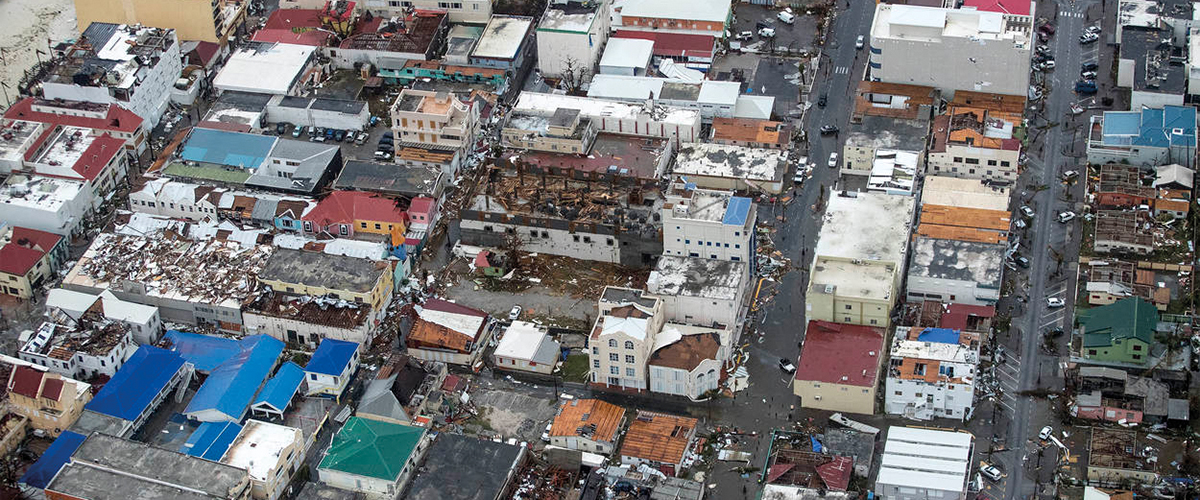
Risk and Resilience in the coastal Caribbean
Primary Investigator: Professor Henrice Altink (History, University of York)
External Collaborators: The Caribbean Emergency Management Agency (CDEMA); The Caribbean branch of the International Red Cross (IFRC); Caribbean Natural Resources Institute (CANARI). Funder: AHRC/GCRF
Resilience refers to the ability of a community to predict, resist and absorb the impact of environmental hazards, so that they can continue to function as successful societies. The frequency and severity of environmental hazards, such as floods and hurricanes, is increasing in many LMICs, where environmental degradation can make recovery from such impacts more prolonged. It is important, then, to understand how to build resilience in and for poorer communities to ensure that they are less vulnerable to environmental risks in future.
A key factor influencing a community’s response to environmental risk is the way it has a developed over time. Also, a community’s cultural traditions shape how it understands and frames resilience and the strategies it adopts to become resilient. Yet most research on resilience focusses on the now and the future and fails to take account of the importance of past events and responses and a community’s cultural traditions and resources. For this reason, this AHRC/GCRF-funded network brings together arts and humanities scholars with environmental, physical and social scientists with expertise in the resilience of socio-ecological systems. It focusses on the coastal Caribbean, an area experiencing numerous and increasing environmental risks, including rising sea levels and more and fiercer tropical storms.
The network has hosted two meetings. The first (York, March 2018) brought together a multi-disciplinary group of scholars, who work on the coastal Caribbean and/or environmental resilience, with external stakeholders to: debate the concept resilience from different disciplinary angles; discuss key challenges in developing environmental resilience in the coastal Caribbean; and assess cross-disciplinary approaches that will allow for a comprehensive study of these challenges. Following this workshop, small interdisciplinary teams worked with external stakeholders (CDEMA, IFRC, and CANARI) to develop three work packages of a research proposal. These were presented at a second workshop (Jamaica, October 2018) to interested local, regional agencies and international organisations, including the Jamaican Office of Disaster Preparedness and Emergency Management, the Jamaican Planning Institute, the World Bank, and Jamaican Caribbean Coastal Area Management Foundation. The work package leaders will use the feedback received to submit a large-scale grant proposal to the GCRF or other funders.
Professor Altink and her Co-Investigator Dr Emily Wilkinson (Overseas Development institute) together with representatives of CDEMA and the IFRC will share their experiences of working on this and related GCRF projects to a selection of MPs at the international global development conference ‘Mobilising Global Voices: Perspectives from the Global South’, House of Commons, 27-28 February 2019.
The network has also fed into the IGDC’s secondary data project and laid the foundation for a GCRF Global Engagement Network grant proposal led by Dr Donovan Campbell of the University of the West Indies, Mona, Jamaica.
Contact us
Interdisciplinary Global Development Centre
igdc@york.ac.uk
01904 323716
Department of Politics and International Relations, University of York, Heslington, York, YO10 5DD, UK
Twitter
Contact us
Interdisciplinary Global Development Centre
igdc@york.ac.uk
01904 323716
Department of Politics and International Relations, University of York, Heslington, York, YO10 5DD, UK
Twitter